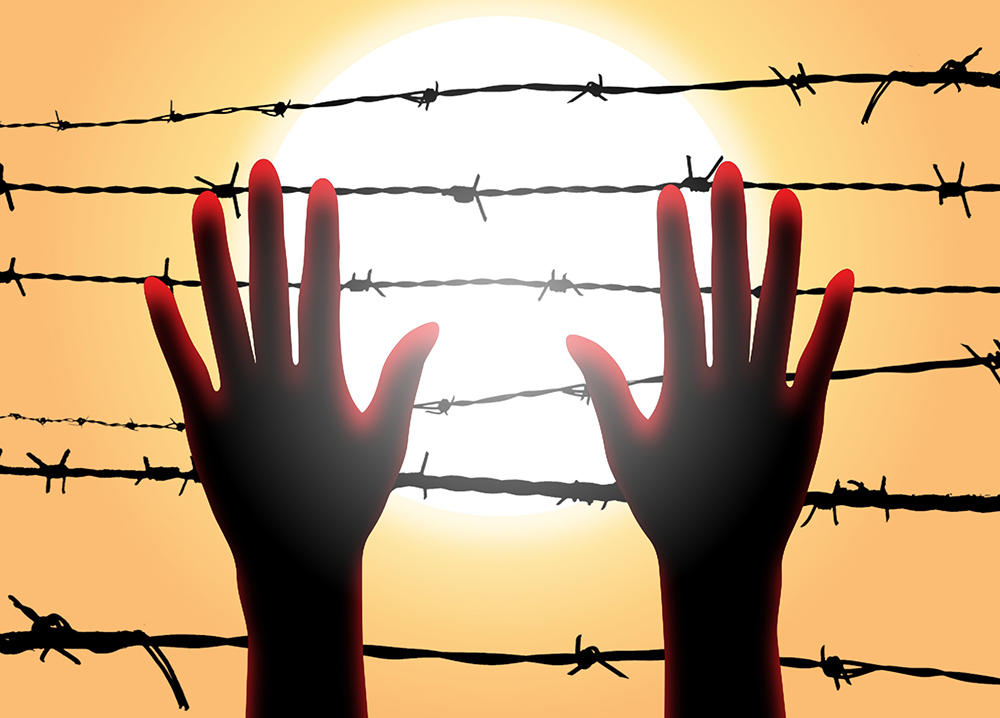
(Pixabay/Zaid Pro)
In my fourth year of ministering to the women at a maximum-security prison, I have found the four-hour experience on Sunday mornings is the highlight of the week, as I offer the Eucharist to the women and make rounds in the visiting room before returning to my community.
With COVID-19 restrictions and many staff and prisoners receiving positive test results, it has been a long period of change and added stress. For instance, I had to put the host in an envelope and slide it under a locked door for a person in isolation, and pray with her in front of a window. Putting Jesus on the floor is not a comfortable experience, but her act of receiving it certainly is. We lived in hope of it being over, but it seemed endless.
Fortunately, I was given permission at the height of the restrictions to offer the Eucharist on Sundays by taking Jesus from the tabernacle and making rounds of the units, announcing my presence and saying a brief prayer before those present received Communion.
As time went on, I distributed reflections written by our volunteer priest, by the former chaplain, and by one of the women. I did this to make the service a little longer, since the papers were taken back to the cells for the women to read; it gave them yet another assurance that people on the outside were still supporting them.
Our short open-space meetings were a witness to staff and other incarcerated individuals that the Catholic faith was nourishing the members. No other religion was offering support in such a way, and at a time when church gatherings were not the norm, the faith was visible here.
For a time, the women were not allowed visitors from outside. When they first started to receive visitors, tables and chairs were arranged for social distancing, touching was prohibited, and it was painful to watch as children could not be touched or held by their mothers. Making it more difficult, the playroom was closed.
Advertisement
How frustrating for visiting family to endure being searched, paying astronomical prices for food and drink from the vending machines, then possibly driving for hours after the experience.
Now visits are allowed if rapid tests are negative. Physical restrictions have been lifted, and my table-hopping is brief, but it provides me the opportunity of being a presence to the women and their loved ones; as we exchange pleasantries, I listen to their complaints and support them as best I can.
Some forms of punishment continue to impact my ministry as a new rule requires packages to be sent through an approved vendor, rather than by direct mail from the family or donor. This was instituted so that guns and drugs will not enter the facilities. The phone system, the downloading of apps on a free tablet provided, items for sale in the commissary that some cannot afford (like deodorant) are part of a system that divide the rich from the poor. Those who have little spending money request help from donations I receive.
Those outreaches for help are time-consuming and create a "provider" role for me that is not why I am a chaplain, but they do allow me to give to those in need.
The "psyche" of the giver and receiver is challenged. The requests are increasing in number: I spend my days off in the Dollar Store, then distribute hygiene supplies, puzzle books, jigsaw puzzles, colored pencils, adult coloring books, and yarn. These are all stress-relieving and greatly appreciated, but they are humbling for the women to receive and taxing on my duties.
Meister Eckhart reminds us that saying thank you is a prayer, and as I go about my ministry that thought lifts my spirits as I witness what kindness means to an individual. And I know that those who provide the resources are continuing the work of Jesus.
A poignant piece of conversation I had with a woman far from home and serving a life sentence helped me realize that being incarcerated is like being in a cemetery for the living.
As I come to learn about how these women are punished by the legal and penal systems, I see how Jesus works in mysterious ways. I read of the numbers of executions that continue to be carried out by states that have the death penalty, and realize that those serving life sentences also know that they will die as incarcerated individuals — I wonder, what is the difference? We can end life, but we can also witness to our belief that the spirit lives on, even to these women who know they will leave this world as a punished person who did something terribly wrong years ago.
The issue is complicated, but it is our Christian duty to examine our legal and penal systems and to learn how to assure justice for those on both sides of the barbed wire. These issues are now on the front burner, and doing or saying nothing about them is our greatest offense.







